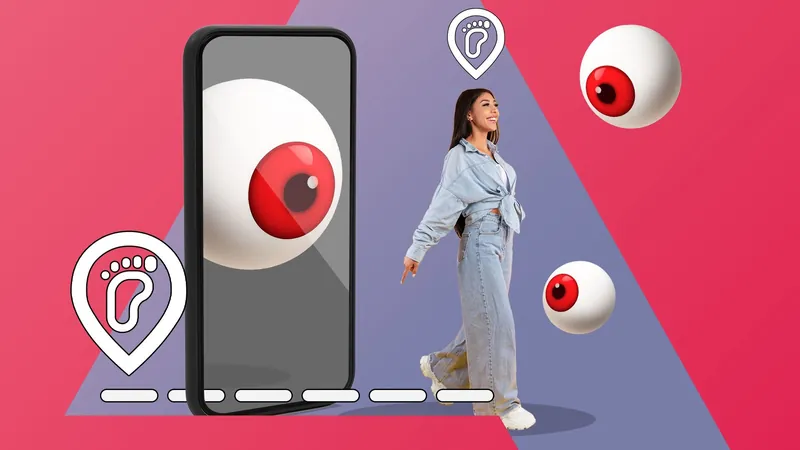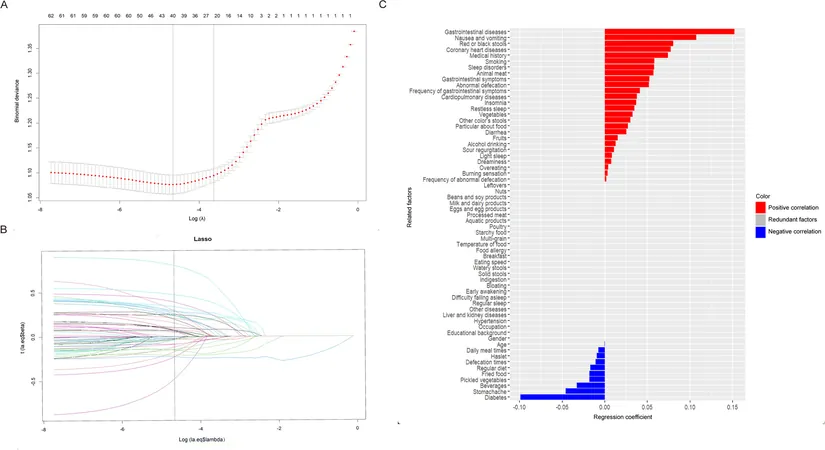
5 Apps That Track You More Than You Realize – And What You Can Use Instead
2025-08-10
Author: Jacob
In today's digital landscape, many apps track your data more closely than you may think. While some data collection is necessary for app functionality, other practices can feel invasive, raising concerns about privacy.
1. Google Chrome: The King of Tracking
Google Chrome is well-known for its extensive tracking capabilities. While it promises a personalized experience with ads and suggestions, it collects data through cookies and Google Analytics, leaving your online activity under constant surveillance. If you value privacy, consider switching to DuckDuckGo, a browser that doesn’t track or store your search history, though it may not match Google's search power.
2. Amazon Alexa: Listening In on You
Amazon's Alexa might seem like a helpful assistant, but it has drawn fire for its privacy practices. With the ability to listen for the wake word, it's now required to send voice recordings to the cloud for processing, eliminating local options. For a more privacy-conscious alternative, explore open-source solutions like Home Assistant.
3. Facebook: Data Collection Overdrive
Meta (formerly Facebook) is notorious for its data collection. Many find it hard to leave due to established connections, but some choose to reduce their usage. A deep dive into your data can be eye-opening; most users are shocked by the extensive details stored on their accounts. If you're looking for alternatives, consider platforms like Discord or WhatsApp for communication—just remember, no social app is entirely safe.
4. Uber Eats: Hungry for Your Data
While Uber Eats needs your location to deliver food, it collects extensive background data, even when you’re not actively using the app. It has been reported that as much as half of its user data is shared with third parties. If you're looking for delivery options with less data tracking, use their website instead of the app.
5. TikTok: Fun Comes at a Cost
TikTok has been under scrutiny for its data practices, facing potential bans in various countries due to concerns over user data access. The app collects a wealth of information, from location to device details, in order to personalize your experience. For those wary of the TikTok ecosystem, alternatives like YouTube Shorts and Clapper offer different takes on short-form content without the overreliance on tracking.
Focus on Your Privacy
Finding apps that prioritize your privacy is challenging, but you can take steps to limit the data you share. Adjust your settings to avoid personalized ads, utilize incognito modes, and resist signing into accounts unless necessary. Protecting your personal data starts with awareness and proactive management of your digital footprint.









 Brasil (PT)
Brasil (PT)
 Canada (EN)
Canada (EN)
 Chile (ES)
Chile (ES)
 Česko (CS)
Česko (CS)
 대한민국 (KO)
대한민국 (KO)
 España (ES)
España (ES)
 France (FR)
France (FR)
 Hong Kong (EN)
Hong Kong (EN)
 Italia (IT)
Italia (IT)
 日本 (JA)
日本 (JA)
 Magyarország (HU)
Magyarország (HU)
 Norge (NO)
Norge (NO)
 Polska (PL)
Polska (PL)
 Schweiz (DE)
Schweiz (DE)
 Singapore (EN)
Singapore (EN)
 Sverige (SV)
Sverige (SV)
 Suomi (FI)
Suomi (FI)
 Türkiye (TR)
Türkiye (TR)
 الإمارات العربية المتحدة (AR)
الإمارات العربية المتحدة (AR)